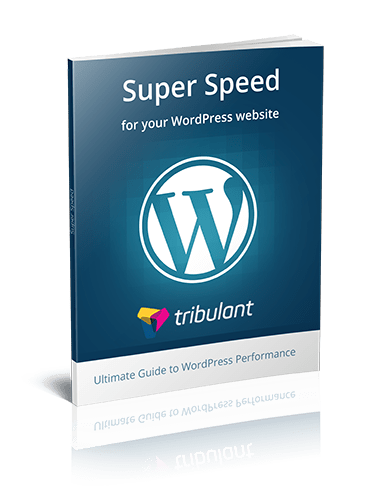
How a Fake WordPress Plugins Can Wreak Havoc on your Website

There are many reasons to worry about a WordPress site. A fake WordPress plugin can be dangerous for your website because it can cause security vulnerabilities, leaving your site vulnerable to hackers and cybercriminals. If you already use a fake WordPress plugin, it may not be so easy to remove it; seeing as how they sneakily disable all of the plugins that would otherwise protect your website from being hacked or defaced.
Some fake plugins masquerade as legitimate WordPress plugins, and they look exactly like their real counterparts. After a potential download of one of these maliciously disguised fake plugins, cybercriminals can take your site down in the blink of an eye. We’ve compiled a list of tips to help you determine if a plugin is safe or if it’s just trying to steal your website’s security and identity.
We’ve compiled this list after testing many fake WordPress plugins that mimic the look of genuine plugins and masquerade as malware, spyware, and other malicious software that could cause serious damage to the security of your website.
Some fake WordPress plugins mimic completely legitimate plugins, and some plugins are named so that they could easily fool any unsuspecting user. Here’s what you need to know about fake WordPress plugins:
Fake WordPress Plugins – Biggest Security Threat
The biggest threat that fake WordPress plugins pose to your website is the potential for hackers and cybercriminals to use them as malware delivery systems. While these malicious plugins may be distributed via rogue plugin downloads or third-party file hosting services, they can also be distributed directly through your server via a drive-by download attack, malicious redirects, or other malicious means.
Fake WordPress plugins pose a serious threat to your website because they can disable your real plugins and prevent you from making changes in your WordPress admin area.
They can also steal sensitive information and load it onto a remote server, attack your server directly, or compromise other websites that use the same server (bypassing all server security). Some fake plugins even open up backdoors on infected servers that allow hackers to make direct changes to WordPress admin settings.
How to Avoid Fake WordPress Plugins
There are several ways that you can avoid fake WordPress plugins:
1. Check a plugin’s ratings and reviews
If you’ve never heard of a plugin before, how can you know if it’s safe? The best way is to check that the plugin has good ratings and reviews from real people who have used the plugin. Although it is possible to fake ratings and reviews, seeing the same measurement of positive feedback across many different sources is a pretty reliable indicator that the plugin is safe. Also, make sure the reviews are not from affiliates as their opinion might be swayed by the commission they receive.
2. Check a plugin’s update history
If you’re still unsure if the plugins are safe or fake, look at their update history. If they haven’t been updated in years, it might be best to stay away from them altogether. Of course, it is also possible to fake update history, but that would require the creator of the plugin and their team to have access to your site.
3. Check a plugin’s website
Some plugins list their source code on their websites or via a third-party site like GitHub and GitLab, giving you an easy way to check if they’re legit. If you’re not a developer, you could check whether or not the plugin’s website exists, looks professional, or if it looks like a cheap knockoff of something else. You can also use online tools like WOT (Web of Trust) to check the safety of any online resource that you access from your website.
4. Install Google Chrome’s malware warning extension
Update your browser and install the Google Chrome extension called Fake Check. It alerts you whenever you access a website known to be a fake regarding either security or identity. You can also download the free Chrome app Malware Advice for Android.
5. Check plugin licenses
If you’re not sure whether or not a plugin is safe, check its license for any terms that prohibit using the plugin on other websites, such as viral marketing or ad networks. This is especially important for plugins that you’ve purchased.
6. Check plugin contents
If you can’t access the source code for a plugin, check to see whether or not it contains any hidden malware. This can be done by using tools like Virus Total or WOT to scan the files and code in any suspicious plugins that you think are fake.
7. Check whether the plugin updates
When you install many WordPress plugins, you’re giving your website a host of new functions to work with. But there’s a catch: later on, if your plugin isn’t updated, those functions might fail. What’s worse is that many plugins don’t update by themselves. In fact, some outdated plugins can cause issues to your site.
That’s why it’s essential to make sure all of the plugins that are installed are up-to-date and fully functional.
8. Run WordPress with Wordfence
Most of the time, websites are hacked because of various vulnerabilities or perhaps a vulnerability that was not fixed even after being reported. In these cases, Wordfence comes to the rescue. Wordfence provides lots of security features for your website and it can also scan it to find old plugins that haven’t been updated, fake plugins, malware hidden in files, and more.
How to Report Fake Plugins
If you believe that a plugin is fake, report the plugin in WordPress’ official forums. You will need to provide as much evidence as possible in your feedback, including screen captures or URLs, so that the moderators can verify your findings. They’ll review the information, and if the plugin is found fake, they’ll ban it from WordPress.org or disable its permissions automatically. If you’re not sure whether a plugin is safe, don’t download it — just let WordPress moderators know about it so that they can take the necessary action for your protection.
Conclusion
Although fake plugins pose a real threat to your WordPress site, you can avoid getting infected by fake WordPress plugins by being vigilant in checking whether the plugin is safe or not and always making sure you have the latest security updates.
Also, make sure to create a good account recovery process with your hosting service provider so that you don’t have to worry about losing access to your site in case of a serious WordPress hack or crash. At Tribulant Hosting, websites are backed up daily for free with free restorations.
Finally, backup up your site regularly to prevent any accidental loss of data. You must take the proper precautions to keep your WordPress site safe, especially if it’s important, like a business website or e-commerce store.
Although it’s important to have WordPress plugins installed, you also need to make sure that they’re actually doing something for your site or improving your experience — otherwise, they may just be helping hackers destroy your website.
What are you doing to secure your WordPress website? Do you have any tips for keeping fake WordPress plugins out of your site? Let us know in the comments below!

Rochelle Williams is a Senior Marketing Manager at Span Global Services. She comes with a strong marketing and advertising industry exposure of over 8+ years and has a deep understanding of SEO, SEM, SMO, Branding, WordPress and allied marketing strategies. Connect with her on Twitter.
Beautiful Newsletter Templates
Professional newsletter templates that are fully responsive for desktop, tablet, and mobile. They are 100% cross-client compatible.




No comments yet